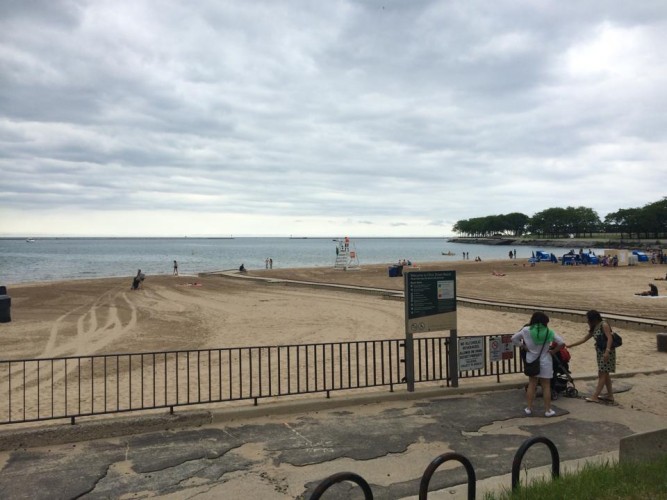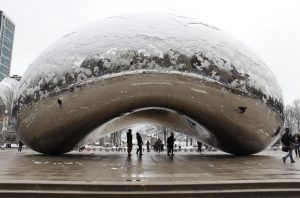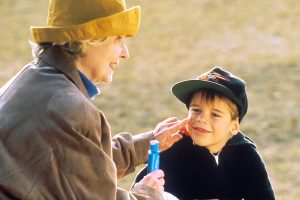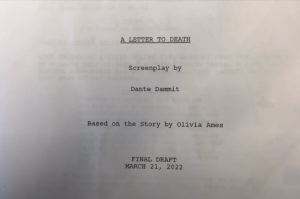Jessica Osborne roller-bladed down to Oak Street Beach on Chicago’s lakefront on Wednesday, two days before the big Fourth of July holiday. The beach typically would be packed, a wall of people sunning themselves, playing volleyball and dipping in the waters of Lake Michigan.
But the beach was mostly empty. After heavy rains dumped stormwater and sewage in the lake, the Chicago Park District banned swimming at Lake Michigan beaches ahead of the holiday weekend. Some of the beaches had started to reopen by Wednesday afternoon, but not all of them had been cleared.
“It’s sucks,” said Osborne, a 27-year-old DePaul University student. “Everyone comes to the beach to see fireworks, relax and chill by the beach.”
Katie M. Baker said the ban doesn’t make a difference. She never swims in the lake.
“I always have considered it dirty,” said Baker, who works in the Water Tower downtown.
A disappointed birthday girl, Katherine Sewall, planned for weeks to celebrate her 18th birthday at the Oak Street Beach but couldn’t swim like she had planned. “My brother lives downtown and when he heard the news he told us we couldn’t swim today,” Sewall said.
She said she wouldn’t come back if the beaches remained closed this weekend. “That’s gonna be awful,” she said.
Jenny Shulz and three of her sorority sisters were visiting Chicago from Ypsilanti, Michigan. They had to readjust their plans. “Honestly, we’ll still go to the beach,” said Kirsten Moore, a 19-year old sophomore studying special education. We just won’t go in the water.”
Shulz added, “Maybe just a quick dip.”
Many Chicago residents were oblivious about the swimming ban upon their arrival to the beach on Wednesday.
“ I had no idea the water was closed, they should put up signs,” said Chicago resident Hailey Nobel.
Chicago resident Cariee Belt said the timing was “horrible” for visitors to Chicago this weekend.
The Chicago Park District performs water quality tests daily in order to check levels of E. coli bacteria present in the city’s various bodies of water. After Monday’s downpour, the city’s sewage infrastructure was unable to contain the abundance of rainwater, which combined with waste water to spill over into the lake.
From a water sample collected by the park district on July 1, Oak Street Beach had almost 17 times more colony forming units of E. coli bacteria than the city had predicted in their daily forecasts.
Steven Blanke, a professor of microbiology of the University of Illinois, said while there are many different strains of E. coli that can each have negative effects, they all cause digestive complications.
[pullquote]The Metropolitan Water Reclamation District of Greater Chicago adopted the Tunnel and Reservoir Plan in 1972 to try and address the overflow issue. This plan involves two phases, the first of which dealt with constructing over 100 miles of tunnels to provide additional space for rainwater. The second phase, expected to be completed by 2019, will finalize the plan with the creation of four reservoirs to contain the water and prevent spillage into the city’s bodies of water.[/pullquote]
Marco Leyva, senior lifeguard at Oak Street Beach, said that news of the ban lifting should arrive tomorrow following water quality test results and hasn’t encountered much complaint.
“We will most likely will be open,” Leyva said. “It’s been pretty calm today, especially on the ledges. No one’s been on there.”
Emily Gonyon, a Prospect High School graduate, said the weather was too cool for swimming anyway.
“I think it’s a good idea to avoid the situation,” she said.

Alexandra Parent of Quebec, Canada, said she had never encountered closed beaches back home. “I think it’s a good idea,” Parent said.
Alex Mitchell and Amy Waksmonski came to Chicago for the summer from Louisiana to escape from the heat and grime of New Orleans.
“We probably still would have come to beach, even if we had known,” Waksmonski said. “I mean, New Orleans is way dirtier than Chicago is.”
“Yeah,” Mitchell said in agreement. “We probably come into contact with the same bacteria everyday, whether it’s in the water or not. I didn’t think the water was dirty. I’ve swam in the Mississippi — now, that is dirty.”
Fellow swimmer, Sarah Dewey, brought out the two young kids she watches daily to Ohio Street beach to play in the water after learning the swimming restrictions were lifted. Dewey said that she trusts the toxin reports from the city officials.
“The water is more clear today than it was last week,” Dewey said, expressing her surprise. “I thought it was going to be way more disgusting after they said there was a ban.”
Luke Cholodecki says that business at his two beachside restaurants, Caffee Oliva at Ohio Street Beach and The Dock at Montrose Beach, is not affected by beach closures but more by the weather.
“The water is too cold for people to swim,” Cholodecki said. “We really only see business slow down on overcast days. Even with the lake closed people still come to the beach to tan when it’s sunny and warm.”
The water temperature at Ohio Street Beach today was 64.4 degrees.
Cholodecki, the father of two young children, said he doesn’t think the lake is as dirty as it is made out to be. He said he lets his children swim in the lake almost every day.
“I think that the Illinois and Chicago beaches get a bad rap,” Cholodecki said.
















Be First to Comment